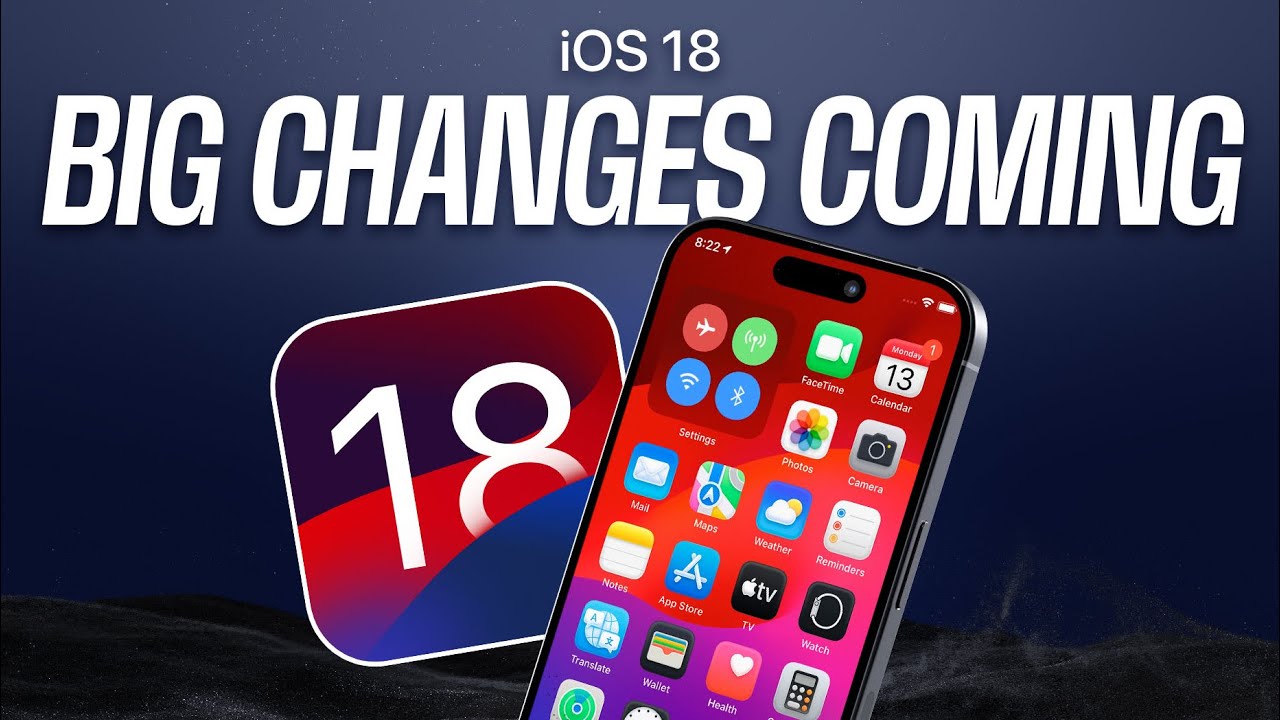iOS 18 should be the next major update to the iPhone operating system, scheduled to arrive in 2024. Apple launches a new version of iOS every year with new features in apps and the system, and makes the update available simultaneously with the new line of company cell phones.

Apple has not yet confirmed any information about the next version, but it is already possible to check some rumors on the market and use previous releases as a reference. FreeGameGuide separated some of the main information about iOS 18 and also gives some guesses about what to expect from the new system.
When will iOS 18 be released?
The new iOS does not yet have a confirmed release date, but the trend of the latest versions released by Apple can help to get a sense of a likely schedule.
The Cupertino Giant usually reveals the new version of iOS (and the operating systems of the brand’s other devices) at the WWDC conference, normally held in June. After the announcement, the system enters the Beta phase and gains some test versions until the final release.
If the company maintains the same standard as in recent years, the stable version of iOS 18 should be released in September 2024 — this was the case with the latest updates. For comparison purposes, iOS 17 reached the general public on September 17th of this year.
What’s new in iOS 18
Some rumors help to understand the scenario surrounding the launch of iOS 18. According to journalist Mark Gurman, from Bloomberg, famous for anticipating news about Apple products, the new update is considered “ambitious and attractive” by Apple employees, and the company intends to invest in software to compensate for minor changes in the hardware of the next iPhone.
The journalist also revealed that Apple interrupted the development of the system to focus on fixing bugs and making it increasingly refined before continuing with the new steps.
Non-iPhone Generative AI
Gurman states that generative AI should be the main focus of the update. A large Apple language model (LLM) for AI training would already be in development this year and could be used to power several of the system’s applications.
The main beneficiary would be Siri, which would gain resources to transform it into a more powerful conversational tool with more natural responses — it is worth remembering that the competitor Google Assistant will be integrated with the Bard AI chatbot this year, even if in a restricted way, so the Apple could follow a similar path with its virtual assistant.
The system could also add features made with AI to other apps, such as an option to create automatic playlists in Apple Music and improvements to text suggestions in Messages.
Generative AI features are already present in the main Android releases — the technology dominated the announcement of the Google Pixel 8 line and the Galaxy S24 should be promoted by Samsung as an “AI Phone” . Therefore, it is common for the next iPhone to follow a similar path.
RCS message support
Apple confirmed that it will incorporate the RCS protocol into the messaging app and facilitate communication with Android devices. The technology acts as a spiritual successor to SMS with support for photos, videos, GIFs, links and larger text.
The company took a while to give in to pressure from Google and adopt the service, which should arrive from 2024 with a system update. The new feature could represent a major advance in communication between different operating systems, as iMessage is an alternative widely used by iPhone owners, but it is still very “closed” to Android.
What we would like to see in iOS 18
In addition to the rumors about what might come next, some functions would be very welcome with the arrival of a new iOS. The CT ‘s “wishes” in this regard are:
AI photo editing
Photos’ native editor is intuitive and packed with interesting features, but the app could also take a leap forward with the introduction of generative AI tools.
A good comparison is Google Photos, installed natively on Android: the app has been updated with options to fill the image background , remove objects and choose the best facial expressions for a selfie, for example. It would be interesting if iOS followed the same path.
Apple Music
Apple Music is a service with a very interesting collection, which includes a high-fidelity music catalog and even its own radio station. However, it lags far behind Spotify when analyzing the app’s functions: the service only received the option for collaborative playlists in 2023, for example, while the green rival has already introduced the option for a few years.
Some specific improvements, especially in creating and sharing playlists, could benefit the use of Apple’s music streaming on the iPhone.
Different work areas
The Android rival allows you to configure a personal and a work profile on your cell phone: this allows you to use your professional login to access apps in this second area and only access applications that are essential for your daily routine.
Apple has a work-oriented focus mode, but it doesn’t yet have a function to create a specific area for it — so it would be a useful addition to iOS.
Which iPhones will receive iOS 18?
There is no official list yet, but it is possible to use Apple’s update cycle as a basis: the company offers system updates for up to five years for iPhones starting from the year each device was launched.
With this logic, it is possible to predict that cell phones launched in 2018 will not receive the update.
The likely list of iPhones expected to update wm 2024 includes:
- iPhone 11
- iPhone 11 Pro
- iPhone 11 Pro Max
- iPhone 12
- iPhone 12 Mini
- iPhone 12 Pro
- iPhone 12 Pro Max
- iPhone 13
- iPhone 13 Mini
- iPhone 13 Pro
- iPhone 13 Pro Max
- iPhone 14
- iPhone 14 Plus
- iPhone 14 Pro
- iPhone 14 Pro Max
- iPhone 15
- iPhone 15 Pro
- iPhone 15 Pro Max
- iPhone SE (2020)
- iPhone SE (2022)
The company usually releases the iOS update simultaneously for all compatible devices.
via @bloomberg



